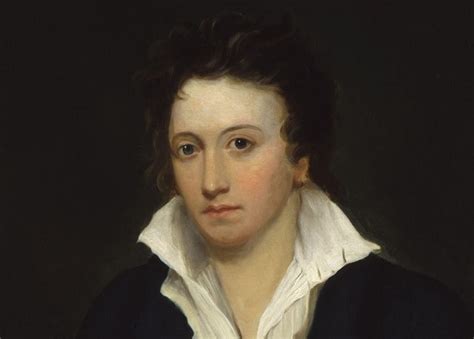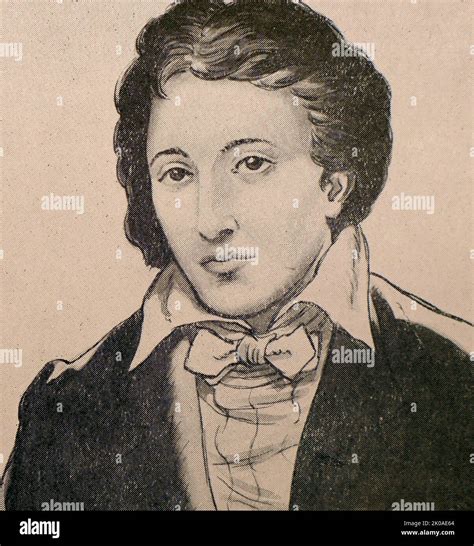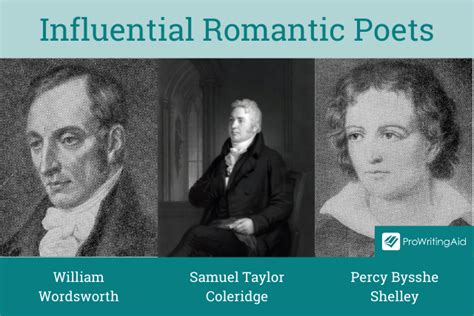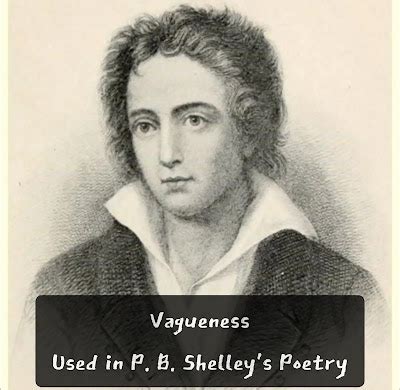In the world of literature, few names shine as brightly as Percy Bysshe Shelley. His life and works are a testament to the power of poetic expression and the pursuit of truth and beauty. Shelley's poetry continues to inspire readers around the world, challenging conventions and sparking intellectual debate.
From his tumultuous personal life to his revolutionary ideas, Shelley's influence can still be felt in the works of modern poets and thinkers. His commitment to social justice and belief in the power of art to change the world make him a timeless figure in the literary canon. Explore the life and works of this extraordinary poet and discover the lasting impact of his words.
The Early Life of Percy Bysshe Shelley

Percy Bysshe Shelley, one of the most prominent English Romantic poets of the 19th century, had a tumultuous early life characterized by rebellion, tragedy, and creativity.
From his childhood in a wealthy aristocratic family to his time at Eton College and Oxford University, Shelley's formative years were marked by a strong sense of individualism and a passion for writing poetry that challenged societal norms.
Despite facing adversity and ostracism from his family and peers, Shelley's early experiences shaped his unique voice and perspective, setting the stage for his later groundbreaking literary works.
The Romantic Ideals in Shelley's Poetry
Percy Bysshe Shelley, a prominent English Romantic poet, was known for his exploration of unconventional and radical themes in his poetry. His works often embody the core ideals of the Romantic movement, which include a profound appreciation for nature, an emphasis on emotion and imagination, a rejection of societal norms, and a belief in the power of the individual.
In Shelley's poetry, these Romantic ideals are manifested through vivid descriptions of natural landscapes, passionate expressions of intense emotions, imaginative and visionary imagery, critiques of oppressive social structures, and calls for revolutionary change. Through his poetic vision, Shelley challenged the status quo and sought to inspire readers to question authority, embrace freedom, and strive for a more just and compassionate society.
Shelley's Political and Social Views

In this section, we will explore Percy Bysshe Shelley's political and social views as reflected in his life and works. Shelley was known for his radical beliefs and outspoken criticism of social injustices during his time.
| Political Views | Social Views |
| Shelley advocated for political reform and believed in the power of the individual to effect change through peaceful means. | He was a staunch supporter of equality and justice for all, speaking out against oppression and advocating for the rights of marginalized groups. |
| His works often criticized the ruling class and the oppressive government, calling for a more democratic society. | Shelley believed in the importance of community and solidarity, envisioning a world where people live in harmony with one another. |
| He was a strong advocate for freedom of speech and expression, championing the idea of individual liberty and autonomy. | Shelley's social views were ahead of his time, advocating for gender equality and the dismantling of social hierarchies. |
The Influence of Nature on Shelley's Writing
In Shelley's works, nature plays a pivotal role in shaping his poetic visions and themes. From the sublime power of the natural world to the delicate beauty of its smallest creatures, Shelley's writing is deeply infused with the influence of nature. Through his vivid descriptions and powerful imagery, Shelley invites readers to experience the wonder and awe of the natural world alongside him. Nature serves as a source of inspiration, reflection, and solace for Shelley, guiding his exploration of profound philosophical and spiritual themes in his poetry.
Shelley's Relationships with Other Romantic Poets

In this section, we will explore Percy Bysshe Shelley's connections and interactions with other prominent Romantic poets of his time.
| Poet | Nature of Relationship |
|---|---|
| Lord Byron | Shelley had a close friendship with Lord Byron and the two poets greatly influenced each other's works. They spent time together in Switzerland and Italy, engaging in intellectual discussions and collaborating on literary projects. |
| John Keats | While Shelley did not have a direct relationship with Keats, he admired Keats' poetry and was influenced by his romantic style. Both poets explored themes of nature, beauty, and the imagination in their works. |
| William Wordsworth | Shelley had a complicated relationship with Wordsworth, who was an older and more established poet. While Shelley admired Wordsworth's talent, he also criticized some of his conservative views in his own poetry. |
The Themes of Love and Freedom in Shelley's Works
In the works of Percy Bysshe Shelley, the themes of love and freedom play a central role in shaping the characters, narratives, and overall messages conveyed in his poetry and prose. Shelley's exploration of love often extends beyond romantic relationships, delving into themes of universal love, empathy, and human connection. Similarly, his preoccupation with freedom encompasses political, social, and personal freedom, reflecting his belief in the power of individual autonomy and liberation.
Shelley's portrayal of love is characterized by an idealistic and transformative quality, emphasizing the capacity for love to inspire change, healing, and transcendence. Through his works, he introduces the concept of a higher, spiritual love that transcends earthly limitations and fosters a sense of unity and interconnectedness among individuals.
On the other hand, Shelley's exploration of freedom is often intertwined with themes of rebellion, resistance, and revolution. He challenges oppressive systems and structures that constrain individual liberty and advocates for the rights of the marginalized and disenfranchised. His works often depict characters who defy societal norms and expectations in pursuit of personal autonomy and self-expression.
Overall, Shelley's exploration of love and freedom in his works serves as a poignant reflection of his vision for a more compassionate, egalitarian, and liberated society, highlighting the enduring relevance of these themes in the context of social justice and human flourishing.
Shelley's Controversial and Radical Poetry

In this section, we explore Percy Bysshe Shelley's controversial and radical poetry, examining how his works challenged societal norms and sparked heated debates among his contemporaries and later generations.
- Shelley's poems often addressed political and social issues, advocating for radical ideas such as atheism, socialism, and nonviolent resistance.
- His use of vivid imagery and powerful language provoked strong reactions from critics, who accused him of promoting dangerous ideologies and undermining traditional values.
- Despite facing censorship and criticism during his lifetime, Shelley's poetry continues to inspire and provoke readers with its unapologetic critique of authority and belief in the power of revolutionary change.
Shelley's Tragic Death and Legacy
Explore the circumstances surrounding Percy Bysshe Shelley's untimely death and the lasting impact it had on his literary legacy.
- Shelley's Mysterious Drowning: Learn about the tragic events leading up to Shelley's death by drowning in the Gulf of Spezia in 1822.
- Impact on Romantic Literature: Discover how Shelley's death influenced the themes and style of his contemporaries and future generations of poets.
- Posthumous Publications: Delve into the publication of Shelley's remaining works after his death, including his acclaimed poems and essays.
- Legacy and Influence: Reflect on the enduring legacy of Shelley's works and his contributions to the Romantic literary movement.
FAQ
What themes did Percy Bysshe Shelley often explore in his works?
Percy Bysshe Shelley often explored themes such as nature, freedom, love, and the supernatural in his works. His poetry often reflected his belief in the power of imagination and the importance of individualism.
What impact did Percy Bysshe Shelley have on the Romantic movement?
Percy Bysshe Shelley was a key figure in the Romantic movement, along with other poets such as William Wordsworth and Samuel Taylor Coleridge. His radical political views and unconventional lifestyle made him a controversial figure, but his poetry and ideas had a significant influence on the development of Romanticism.
How did Percy Bysshe Shelley's personal life influence his poetry?
Percy Bysshe Shelley's personal life, marked by tragedies such as the loss of his first wife and children, had a profound impact on his poetry. His experiences of loss and suffering often found expression in his works, which are characterized by their emotional intensity and introspective exploration of human nature.
What are some of Percy Bysshe Shelley's most famous works?
Some of Percy Bysshe Shelley's most famous works include "Ozymandias," "Ode to the West Wind," "To a Skylark," and "Prometheus Unbound." These poems are considered classics of English literature and showcase Shelley's skill as a poet and his enduring relevance.
How was Percy Bysshe Shelley regarded by his contemporaries?
Percy Bysshe Shelley was considered a controversial figure by his contemporaries due to his radical political views and unconventional lifestyle. While some admired his intellect and poetic talent, others criticized him for his rebellious spirit and unconventional beliefs. However, he was ultimately recognized as one of the greatest poets of his time and his works continue to be studied and celebrated today.



